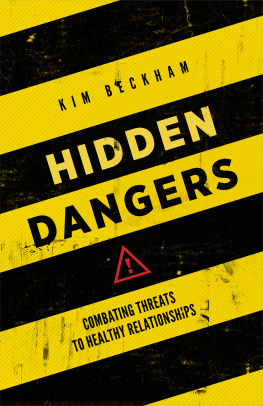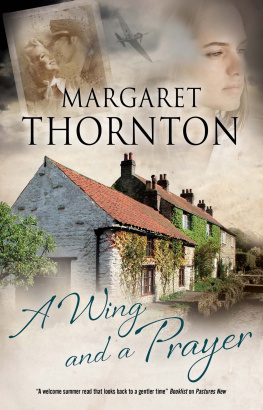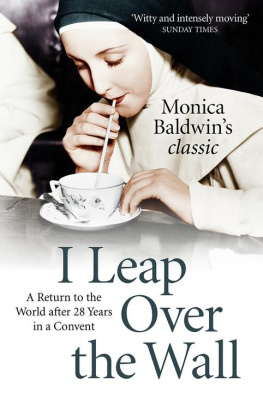When I was eight years old, our family lived in the country. My brothers and I lovedgetting to run free on the acres of forest and undeveloped meadows around our home.One of our favorite spots was a tiny creek that ran through a small ravine abouthalf a mile from our house. Someone had rigged a rope that you could swing acrossthe ravine and land with an impressive leap across the shallow water. Then you couldrush back across the creek and up a five-foot-high embankment to reach the rope andswing again.
One day, as we were enjoying the excitement of the rope across the creek, I had anexperience that would stay with me all of my life. While running back across thecreek after swinging, I started up the side of the slope and pulled myself up tothe last step on the climb. As I stepped to the top, my eyes fell on a pile of largesticks lying on the flat area just inches from my face. My eye caught a slight movementand, to my horror, I was face-to-face with a large, black snake. It was one of thecottonmouth water moccasins that populate the East Texas woods, and I knew the dangerwas real.
The water moccasin is one of the three venomous snakes native to East Texas, andits bite is painful and potentially fatal. I was less than one foot from its uglyhead, and if he chose to strike, there wouldnt be time to move out of his way. ThenI realized that we had been running right by the snake for the last several minutesand hadnt even seen it as we charged up the slope. I held my breath and waited tosee what that fat, black snake would do. Fortunately, it turned and slithered offthe embankment in the opposite direction from my panicked face. It took thirty minutesto calm down and go back to swinging with my brothers. But when I did, I watchedfor snakes with much greater caution than I had before.
Ive never forgotten that experience and one of the lessons I took from that day.It is possible to have very dangerous things hidden just inches from you. That iswhat this book is aboutexposing the relationship-killers to which we are often oblivious.
We live in a time of relationship meltdowns. Most of us have relationship struggleswith friends or family. Outsiders can often easily see the causes of the painfulstruggles endured by others. Yet those in the midst of strife may not even noticethe problems. The truth is that having deep and satisfying connections with thesignificant people in our lives is complicated.
Everyone knows the relationship deal breakersinfidelity and betrayal. Few of usare surprised when relationships are damaged by cruelty or gossip. But many of usfind ourselves perplexed by the relationships that fall apart when there seems tobe no apparent reason. There are many ways to weaken or damage those delicate ties.In over thirty years of counseling and leading people in all kinds of relationships,I have witnessed the hidden dangers in healthy relationships that often go unnoticeduntil its too late. I am writing this book to bring some of these relational landmines to the surface.
It is my hope that as you read about the hidden dangers revealed in the pages thatfollow, you will find ways to strengthen the connections of your life. Each chapterincludes helpful exercises to cement new insights into your mind and to put theminto practice with loved ones. Lets get started exposing those hidden dangers thatcan ruin your most treasured relationships.
You must love yourself before you love another. Byaccepting yourself and fully being what you are,your simple presence can make others happy.
Anonymous
How can you love someone else when you dont like yourself?
An inferiority complex can be thought of as poor self-esteem. Positive self-esteemthinkingof ourselves and valuing ourselves highlyis crucial in relationships because itgives us the ability to fight when we face overwhelming odds. Sometimes it seemsthere is nothing we can do to resolve a struggle in our marriage, to help our childrenget in line, or to resolve conflict among friends. High self-esteem is a powerfulweapon to help us face all these problems. With it, no situation can keep us fromseeing ourselves as strong, capable, and deserving. High self-esteem allows us tofeel comfortable with high levels of success. It confirms our desire to fulfill ourcapabilities, and it wont let us rest if we have done the wrong thing.
Former First Lady Eleanor Roosevelt spoke wisely when she said, No one can makeyou feel inferior without your consent. Still, so many of us feel inferior. We feelthat were not good-looking enough, or smart enough, or even spiritual enough forpeople to love us. In reality, the trouble is we dont love ourselves. And if wedont love ourselves, our ability to love others is hindered. As a result, our relationshipsare put in jeopardy.
- How is your self-esteem?
- Is your insecurity in relationships a result of poor self-esteem?
The primary driver of strong marital relationships is intimacy. We all yearn to getclose and build lasting connections. The Bible says, Nevertheless neither is theman without the woman, neither the woman without the man, in the Lord (1 Cor. 11:11KJV). This is a clear teaching that we are meant to be connected. Yet sometimesan inferiority complexin one partner or bothcan sabotage intimacy.
What does an inferiority complex in a marriage look like? It may take many forms:I cant trust you because Im not attractive enough to hold your attention. Icant tell the truth; I have to rely on lies instead of on love to keep our relationshipgoing. I have to find ways to destroy this healthy relationship because Im notworthy of being loved. It could even be: I must stay in this destructive relationshipeven to the point of physical danger because Im not good enough for anyone else.No one will want me if I leave my abusive spouse.
Sometimes were afraid to show our flaws. To avoid revealing them, we do all wecan to mask our weaknesses. This behavior can also sabotage our potential to beclose to and achieve true intimacy with others. We need to love ourselves enough,and trust others enough, to let our true selves showfaults included.
Parents can even have inferiority issues. We are living in the Age of the Child.In my generation, the rule for children was, Be quiet. Stay out of the way. Dontcause any commotion. If we want to talk with you, well speak with you first.Today, its a different story. Kids rule the roost! Mom and Dad cant seem to livetheir lives without checking first with their children. Its good to do all we canfor our children, but not if our sole purpose is to be perfect parents with perfectchildren.
Many parents dont enjoy their children for the unique people that they are. Theyuse and want their children to serve as ego boosters. These types of parents do notlove their children as individuals but only as a reflection of great parenting.Behind closed doors, some parents may sound like this: Youre not pretty enough.Youre not as good as your sister. Youre not smart. Youre no athlete. Manychildren feel as if nothing they do pleases their parents. If they get a B on theirreport card, it should have been an A. If they get an A, it should have been an Aplus. If they score a touchdown playing football, they should have scored two. Ifthis continues, the child may develop feelings of Im not worth anything.
This negative talk creates a hole in our childrens heartsa hole that grows largeras they become adults. As adults, many of us are like donuts. We may look okay onthe outside because were glazed over, but inside is a huge hole and feelings ofunworthiness. Where did these feelings come from? They started with our parents.Disapproving, negative remarks and evaluations of behavior that emphasize mistakesand shortcomings can seriously damage childrens self-esteem even before they reachthe age of six!













